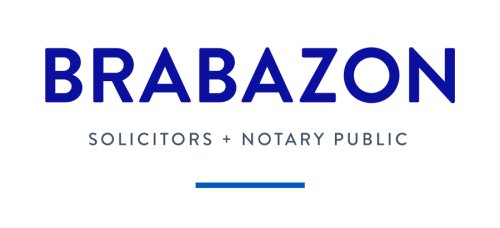Best Hiring & Firing Lawyers in Ireland
Share your needs with us, get contacted by law firms.
Free. Takes 2 min.
Or refine your search by selecting a city:
List of the best lawyers in Ireland
About Hiring & Firing Law in Ireland
Hiring and firing in Ireland are governed by a complex set of laws and regulations designed to ensure fair treatment of employees and to provide clear guidelines for employers. Irish employment law covers a range of topics, including recruitment, contracts of employment, workplace rights, and the procedures that must be followed when terminating employment. The primary aim of these laws is to strike a balance between protecting employees' rights and allowing employers the flexibility needed to manage their workforce effectively.
Why You May Need a Lawyer
There are various situations where individuals or businesses might require legal assistance relating to hiring and firing in Ireland. These may include:
- Drafting or reviewing employment contracts to ensure compliance with Irish law.
- Dealing with disputes arising from unfair dismissals or redundancies.
- Handling allegations of discrimination in the hiring process or during employment.
- Navigating complex issues related to TUPE (Transfer of Undertaking Protection of Employment).
- Advising on breaches of contract or dealing with claims under the Employment Equality Acts.
Local Laws Overview
Key aspects of local laws in Ireland relevant to hiring and firing include:
- Employment Contracts: Employers are required to provide employees with written terms of employment within two months of starting work.
- Unfair Dismissals Act: Protects employees with 12 months of continuous service from being dismissed unfairly. Certain justifications for dismissal, such as conduct or capability, must be proven.
- Redundancy Payments Acts: Outline the payment obligations of employers if an employee with over two years of service is made redundant.
- Discrimination: The Employment Equality Acts prevent discrimination on several grounds, including gender, age, and race, during hiring and employment.
- Notice Periods: Legal requirements specifying the minimum period of notice employers or employees must give before terminating employment.
Frequently Asked Questions
What is considered unfair dismissal in Ireland?
Unfair dismissal occurs when an employer terminates an employee's contract without just cause or without following due procedure as outlined in the Unfair Dismissals Act.
How long must an employee work before they are protected against unfair dismissal?
An employee must have at least 12 months of continuous service to qualify for protection against unfair dismissal, with some exceptions.
What are the main grounds for redundancy?
Redundancy occurs due to factors such as business closure, reduced need for employees, or organizational restructuring. It is not based on an employee’s conduct or performance.
Are probationary periods allowed under Irish employment law?
Yes, probationary periods are permitted and typically range from six months to one year, during which employees have limited protection against unfair dismissal.
What should an employment contract include?
An employment contract should include details such as job description, salary, working hours, notice periods, and any applicable policies or handbooks.
Can an employer dismiss an employee for poor performance?
Yes, but the employer must provide evidence of poor performance, have given prior warnings, and offered an opportunity for improvement.
Is it legal to discriminate during the hiring process?
No, discrimination based on gender, race, age, disability, and other grounds is prohibited during hiring as per the Employment Equality Acts.
What recourse does an employee have if they are unfairly dismissed?
An unfairly dismissed employee can bring a claim to the Workplace Relations Commission (WRC) for compensation or reinstatement.
Are severance packages mandatory in Ireland?
Employers are obligated to provide statutory redundancy payments, but additional severance packages are not legally required unless stipulated in a contract.
What is TUPE, and when does it apply?
TUPE regulations protect employees' terms and conditions when a business or part of it is transferred to a new employer. It applies during mergers, acquisitions, and service contract transfers.
Additional Resources
For further information and legal guidance, consider reaching out to the following resources:
- Workplace Relations Commission (WRC): Handles employment disputes and claims of unfair dismissal.
- Citizens Information: Provides detailed guidance on employment rights and obligations.
- Irish Congress of Trade Unions (ICTU): Offers advice and representation to its affiliated trade unions and their members.
- Law Society of Ireland: Offers resources for finding employment law solicitors in your area.
- Local Employment Offices: Can provide information and referrals for legal assistance.
Next Steps
If you need legal assistance in matters of hiring and firing, consider taking the following steps:
- Consult with a solicitor specializing in employment law to assess your situation and provide tailored advice.
- Gather all relevant documents, such as employment contracts, termination notices, and any correspondence with your employer or employee.
- If involved in a dispute, consider mediation services to resolve issues before escalating to legal proceedings.
- File a claim with the Workplace Relations Commission (WRC) if you believe your employment rights have been infringed.
Lawzana helps you find the best lawyers and law firms in Ireland through a curated and pre-screened list of qualified legal professionals. Our platform offers rankings and detailed profiles of attorneys and law firms, allowing you to compare based on practice areas, including Hiring & Firing, experience, and client feedback.
Each profile includes a description of the firm's areas of practice, client reviews, team members and partners, year of establishment, spoken languages, office locations, contact information, social media presence, and any published articles or resources. Most firms on our platform speak English and are experienced in both local and international legal matters.
Get a quote from top-rated law firms in Ireland — quickly, securely, and without unnecessary hassle.
Disclaimer:
The information provided on this page is for general informational purposes only and does not constitute legal advice. While we strive to ensure the accuracy and relevance of the content, legal information may change over time, and interpretations of the law can vary. You should always consult with a qualified legal professional for advice specific to your situation.
We disclaim all liability for actions taken or not taken based on the content of this page. If you believe any information is incorrect or outdated, please contact us, and we will review and update it where appropriate.
Browse hiring & firing law firms by city in Ireland
Refine your search by selecting a city.
















